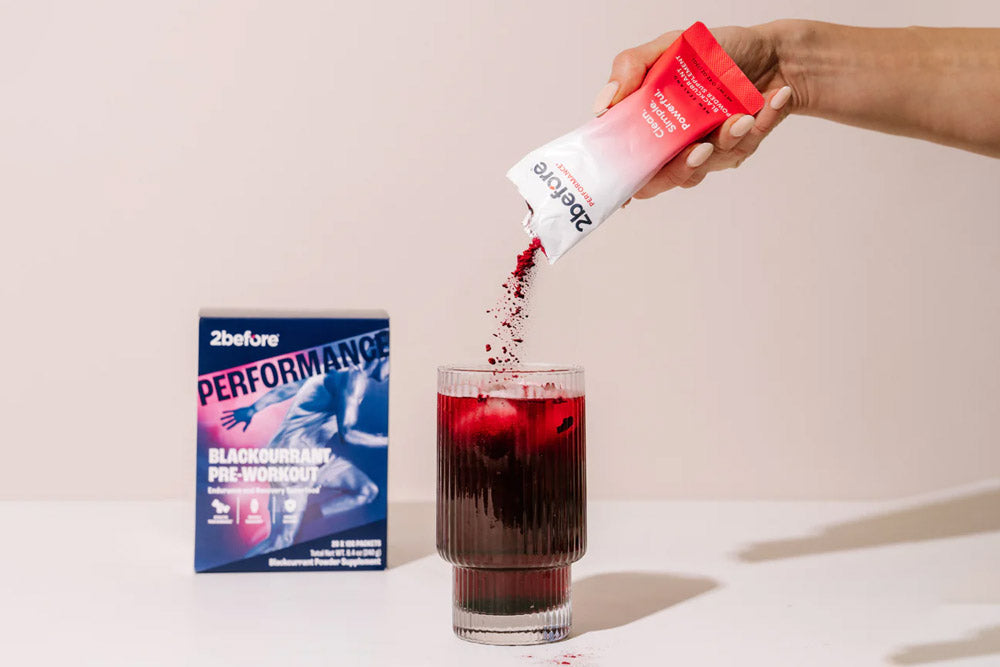Understanding Inflammation and Its Impact on Health
Inflammation is the body's natural response to injury, infection, or irritation.
While acute inflammation is a short-term reaction that can be beneficial in healing and protecting the body, chronic inflammation can lead to various health issues.
Persistent inflammation has been linked to numerous diseases, such as heart disease, diabetes, cancer, and autoimmune disorders. As a result, finding ways to manage and reduce inflammation is crucial for maintaining overall health and well-being. One promising solution comes in the form of blackcurrant supplements, which have demonstrated anti-inflammatory properties that can help alleviate and prevent inflammation-related issues.
The Role of Bioactive Compounds in Blackcurrants
Blackcurrants are rich in bioactive compounds, such as anthocyanins, flavonoids, and gamma-linolenic acid (GLA), that contribute to their anti-inflammatory effects. Anthocyanins, responsible for the fruit's deep purple color, are potent antioxidants that can neutralize free radicals and reduce oxidative stress. Flavonoids have also been shown to possess anti-inflammatory properties, while GLA, an omega-6 fatty acid, has been found to inhibit inflammatory pathways in the body.
How Blackcurrant Supplements Help Reduce Inflammation
Research has demonstrated that blackcurrant supplements can help reduce inflammation in various ways, from inhibiting inflammatory pathways to enhancing the body's antioxidant defenses.
Inhibiting Inflammatory Pathways
One of the primary mechanisms through which blackcurrant supplements help reduce inflammation is by inhibiting the production of pro-inflammatory substances in the body. Studies have shown that the anthocyanins and other bioactive compounds in blackcurrants can suppress the production of inflammatory markers, such as cytokines and prostaglandins. This effect can be particularly beneficial for individuals with chronic inflammatory conditions, such as arthritis, asthma, or inflammatory bowel disease.
Enhancing Antioxidant Defenses
As mentioned earlier, blackcurrants are packed with antioxidants that can help neutralize free radicals and reduce oxidative stress. This is important because oxidative stress can contribute to inflammation and exacerbate existing inflammatory conditions. By providing the body with an abundance of antioxidants, blackcurrant supplements can help enhance the body's natural defenses against inflammation and support overall health.
Supporting Joint Health and Mobility
Blackcurrant supplements can also support overall joint health and mobility. The anti-inflammatory and antioxidant properties of blackcurrants can help protect joint tissue and promote healthy joint function. This can be particularly beneficial for athletes and active individuals who want to maintain optimal joint health and prevent injury.
Blackcurrant Supplements for Athletes and Exercise-Induced Inflammation
Exercise-induced inflammation is a common issue among athletes and active individuals, often resulting in muscle soreness, stiffness, and reduced performance. Blackcurrant supplements can help alleviate exercise-induced inflammation and support athletic performance and recovery.
Reducing Muscle Damage and Soreness
Intense exercise can cause muscle damage and inflammation, leading to soreness and reduced performance. Studies have found that blackcurrant supplements can help reduce muscle damage and soreness by decreasing inflammation and oxidative stress. In one study, athletes who took a blackcurrant supplement experienced less muscle soreness and faster recovery times compared to those who took a placebo.
Supporting Athletic Performance and Recovery
The anti-inflammatory properties of blackcurrant supplements can also support athletic performance and recovery. By reducing inflammation and oxidative stress, blackcurrant supplements may help improve exercise efficiency, endurance, and overall performance. Additionally, the improved circulation and blood flow provided by the anthocyanins in blackcurrants can enhance oxygen and nutrient delivery to the muscles, further supporting athletic performance and recovery.



